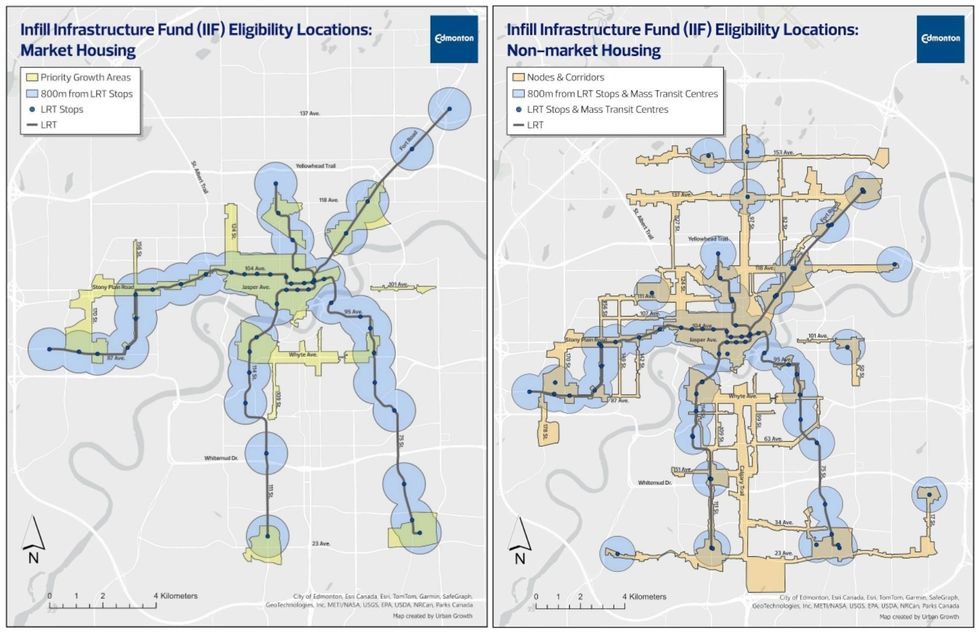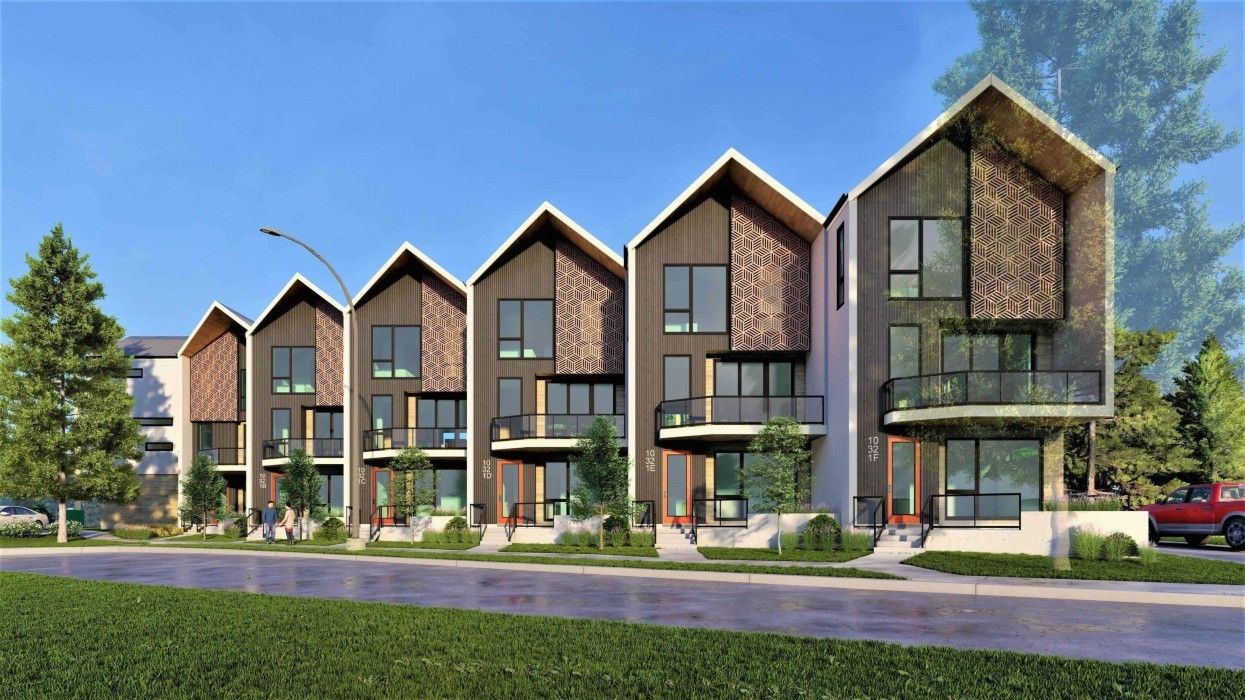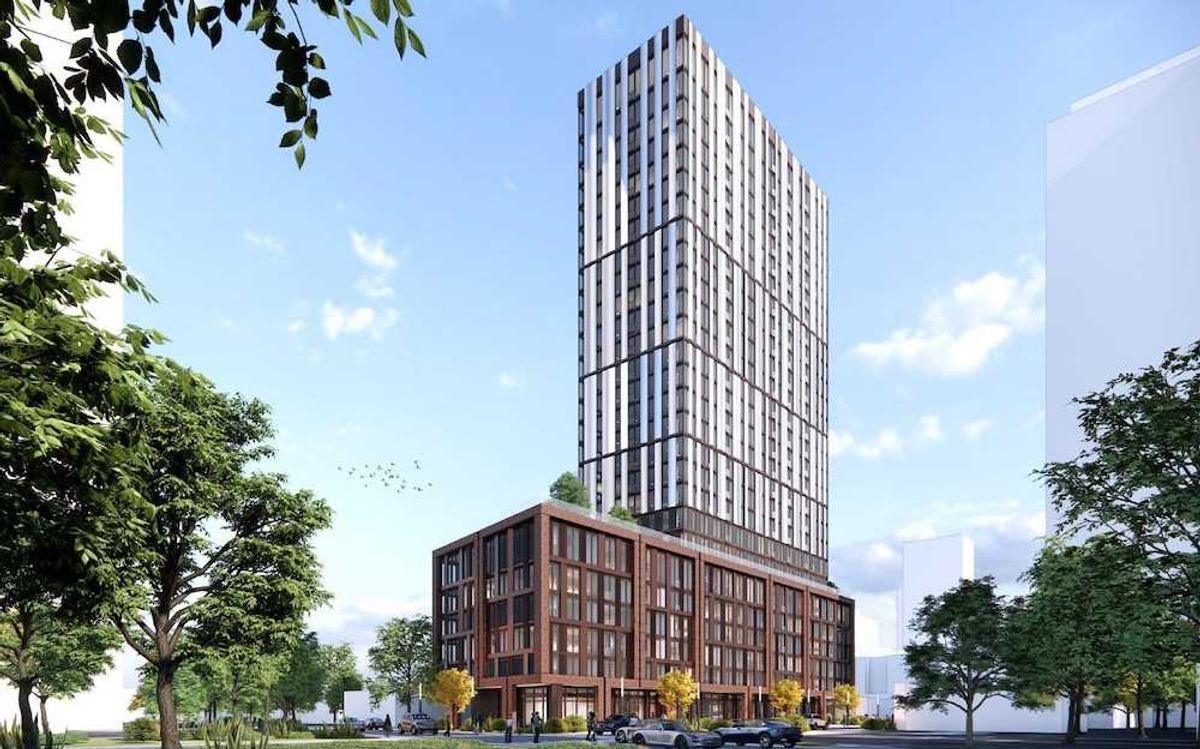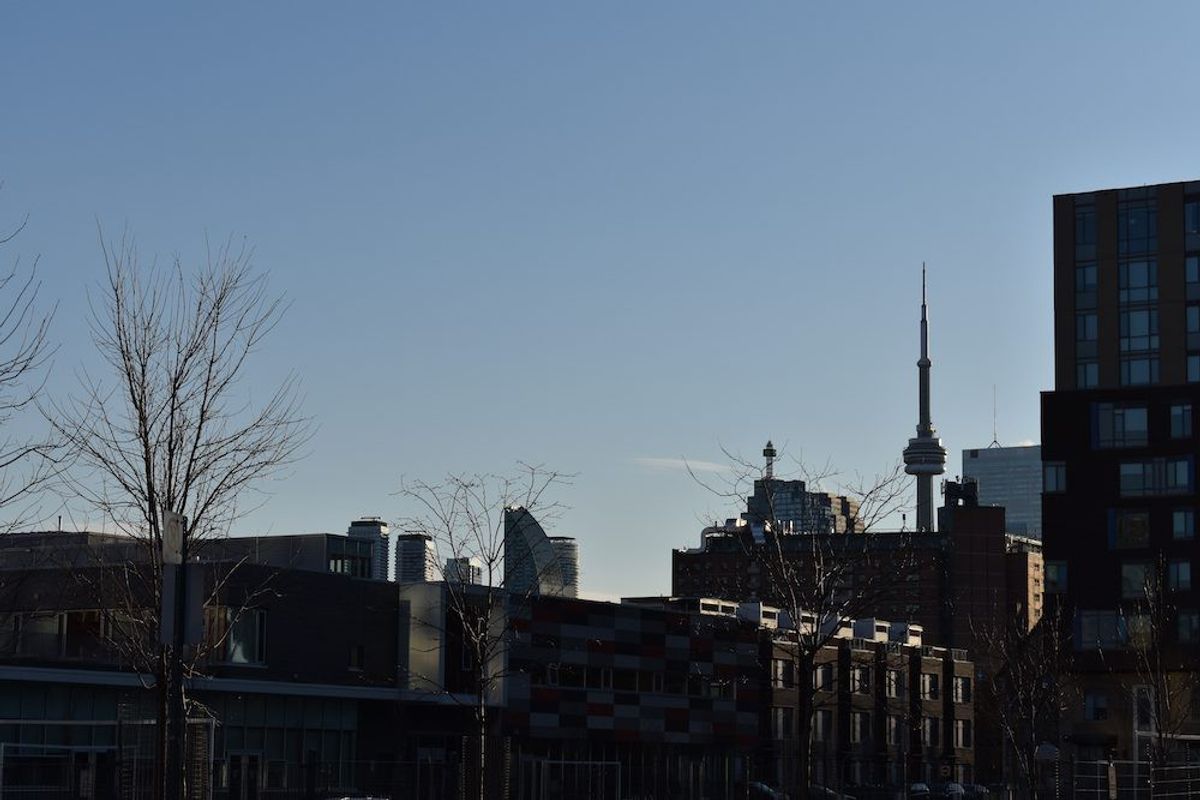As cities across Canada begin pushing for more new housing, one of the biggest common concerns is whether there is enough infrastructure to support that housing and how that new infrastructure will be funded. On Friday, the City of Edmonton began addressing that concern with the announcement of a new Infill Infrastructure Fund.
"The Infill Infrastructure Fund will help cover shared public infrastructure costs for new multi-unit housing developments in Edmonton’s existing neighbourhoods, where it’s needed most to support the city’s growth," said the City in a press release.
Edmonton is set to receive $175 million via the Government of Canada's Housing Accelerator Fund and has allocated $39 million towards this new Infill Infrastructure Fund, which will cover up to 100% of eligible off-site infrastructure costs, with a minimum of $100,000 and a maximum of $4 million per application.
Such off-site infrastructure includes upgrades to water, storm, and sanitary systems, as well as electrical and mobility (sidewalks, streetlights) infrastructure, the City says. Infrastructure with limited or no ability to service another parcel is not eligible, including landscaping, playground equipment, and new electrical service.
The funding is only available to housing projects with 10 more units that are located in urban centre nodes and on main street corridors near transit, although both market and non-market housing projects are eligible.

Funding will be distributed on a first-come, first-served basis and will be available until July 9, 2026 or until all funding is allocated, and projects must obtain a building permit by November 9, 2026 in order to receive full funding.
According to the City, the funding amount will be estimated at the time of application and refined throughout the development process, before being finalized at the servicing agreement stage. Projects will receive 25% of the approved funding amount after the servicing agreement is executed and the remaining 75% after the subject infrastructure has been constructed and accepted as in-service, the City says.
The City has published a full program guide and is now taking applications.
With Edmonton's population expected to increase by more than 10% through 2026, the City says it wants to make "meaningful changes to building a healthy, urban, climate-resilient city where all neighbourhoods have a variety of housing options and Edmontonians can easily meet their daily needs close to home."
"The City recognizes the upfront investment required by developers for shared public infrastructure upgrades — water, storm and sanitary systems, mobility infrastructure and electrical distribution — can be significant," said Kim Petrin, Deputy City Manager of the City's Urban Planning and Economy Department. "This is particularly true in existing neighbourhoods where the first housing project in an area is often required to front the cost for upgrades that benefit subsequent developments. Breaking down these development barriers is important for making Edmonton a top choice for housing investment."
"As our city grows, increasing the supply and types of housing will be critical to maintaining Edmonton's affordability, liveability and competitive advantage, as well as preventing people from falling into housing need," added Mayor Amarjeet Sohi. "This fund helps create the conditions needed to support Edmonton's rapid growth and tackle housing supply and affordability challenges for years to come."
- Feds Push For Transit-Oriented Development With $30B Canada Public Transit Fund ›
- Trudeau Announces New $6B Housing Infrastructure Fund ›
- 8 Units Per Lot: Edmonton Ends Exclusionary Zoning With Bylaw Overhaul ›
- BC Is Allowing Up To Six Units Per Lot. Will They Actually Be Built? ›
- Edmonton Introduces Automated Reviews For Development Permits ›




















